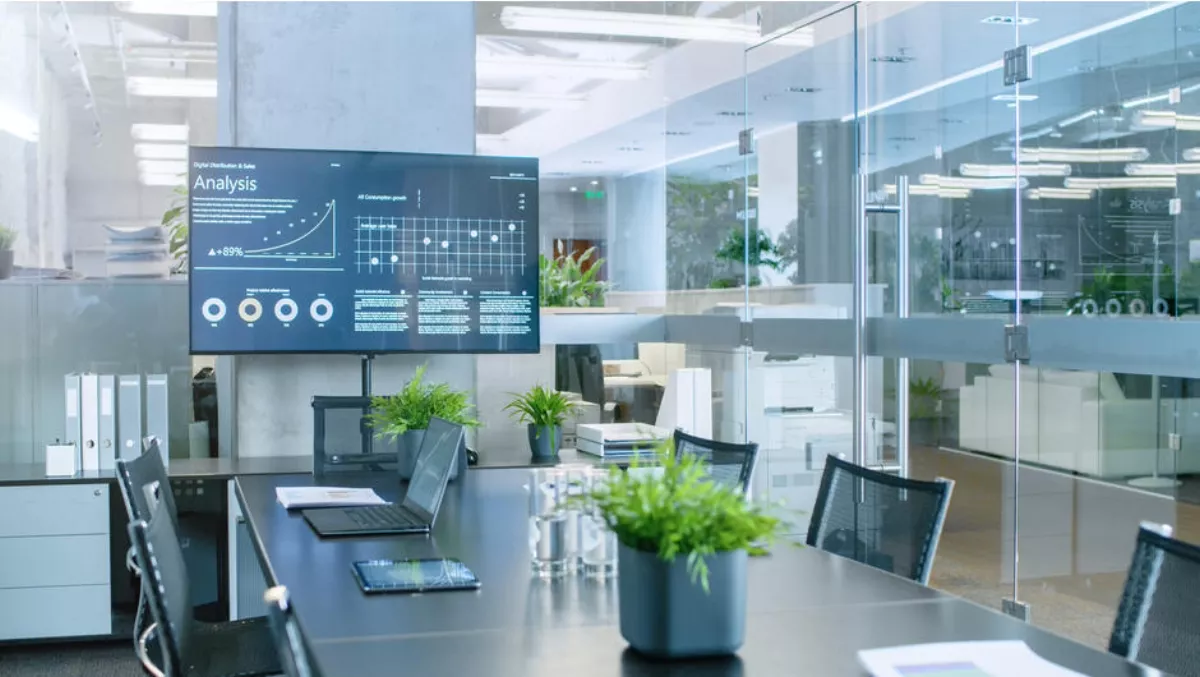
Employees in digital workplaces have better productivity - report
Employees who work in digital workplaces are not only more productive but also more motivated, have higher job satisfaction, and report an overall better sense of well-being, according to a new global study from Aruba.
The study, Digital Revolutionaries Unlock the Potential of the Digital Workplace, reveals both the business and human benefits of more digitally driven workplaces, and how companies that are less technologically advanced are at risk of falling behind the competition and not attracting top talent.
It also notes that companies must be vigilant as more digital-savvy employees are taking greater risks with data and information security.
Key findingsThe study of 7,000 employees across 15 countries revealed a clear chasm in employee performance and sentiment between more advanced digital workplaces and those that employ digital technology to a lesser degree.
A number of key themes emerged:
• Beyond productivity, digital tools unlock human benefits: "Digital Revolutionaries" - employees identified as those who work in fully-enabled digital workplaces where new workplace technologies are in widespread use - were 51% more likely to have strong job satisfaction, and 43% more likely to be positive about their work-life balance than "Digital Laggards" - those who have less access to workplace technology. The Revolutionary employees were also 56% more likely to say they are motivated at work, and 83% more likely to praise their company's vision.
• Digital working also supports professional development: 65% of Revolutionaries reported they had seen professional development and growth through the use of digital technology, compared to just 31% of Laggards. With a digital workplace, 72% of Revolutionaries reported a higher ability to adopt new work skills as compared to 58% of Laggards.
• Productivity gains from digital technology quantified: 73% of Digital Revolutionaries reported a positive impact to their productivity and 70% cited improved collaboration thanks to digital technologies, vs. 55% of laggards.
• Continued advancements in digital technology and automation pave the way for better workplace experiences: While automation can be perceived as a threat to job security, our research found that there was widespread enthusiasm for it. 71% of respondents said they would welcome a fully automated workplace in the next 5- 10 years, allowing organisations to build smarter, more effective working environments.
"No matter the industry, we're seeing a move toward human-centric places as enterprises strive to meet rapidly changing expectations of how people want to work," Herman Miller workplace strategy, design, and management director Joseph White.
"This depends upon combining advances in technology – which includes furnishings – with the cognitive sciences to help people engage with work in new ways.
This will not only mean singular, premium experiences for individuals, but also the opportunity for organisations to attract and retain the best talent.
Deloitte strategy - operations managing director Francisco Acoba says, "The very nature of the term "workplace" is being transformed, as companies begin to realise that effective space is experience-centric, and must accommodate work styles spanning generations and personality types.
"This ushers in new processes where IT solutions, building systems and furnishings interact harmoniously with humans to create such spaces.
"Regardless of your enterprise's specific situation, when spaces become active participants in the user experience it benefits the bottom line. After all, workers who feel comfortable in a space get their tasks done. Those who don't will eventually move on to a more inviting option.
Emerging risksThe study also found that employees are enthusiastic about new technology and have a desire for their employers to provide more.
Throughout Asia Pacific, almost all respondents (98%) thought their workplace would be improved through greater use of technology, while 70% said their company will fall behind the competition if new technology isn't implemented.
The same portion (67%) believe the traditional office will become obsolete due to advances in technology.
• 75% of respondents in Asia Pacific said their companies have invested in digital workplace tools in the past year, and interest is growing in a new generation of technologies including smart building tools that automate temperature controls and lighting (14%), voice-activated and wireless AV technology (16%), and custom corporate mobile apps (11%).
• Most respondents thought digital technology would result in a more efficient (63%), more collaborative (53%) and more appealing (52%) work environment.
While the benefits of digital workplaces are wide-ranging, the study also revealed that cybersecurity is a challenge for employers.
• Although employees reported higher levels of cybersecurity awareness (56% think about security often or daily), they also admitted to taking more risks with company data and devices, with 73% admitting to risky behaviours such as sharing passwords and devices.
• A quarter (25%) of employees have connected to potentially unsafe open Wi-Fi in the past twelve months, 20% said they use the same password across multiple applications and accounts, and 17% admitted to writing down passwords in order to remember them.
The road forwardThese findings indicate that companies must adapt to leverage the benefits of new digital workplace technology while simultaneously minimising security risks. Aruba recommends that organisations take the following actions:
• Adopt a digital workplace strategy: IT departments need to work with business managers, end-users and other stakeholders to define a roadmap for their digital workplace evolution. This includes moving beyond established technologies to deploying new tools such as smart sensors and customised mobile apps that will create increasingly personalised workplace experiences.
• Build collaborative digital workspaces: Companies need to think about how the digital workplace extends beyond their head office to support remote workers, partners, and customers. IT leaders need to plan for, and invest in, a working environment without borders.
• Incorporate security from the ground up: Companies must architect the digital workplace with security as an integral part of the design, taking into account the role of human error as well as bad actors. To achieve optimum security that can adapt to change and unknowns, IT must look to emerging technologies in networking, cloud computing, AI and machine learning.


